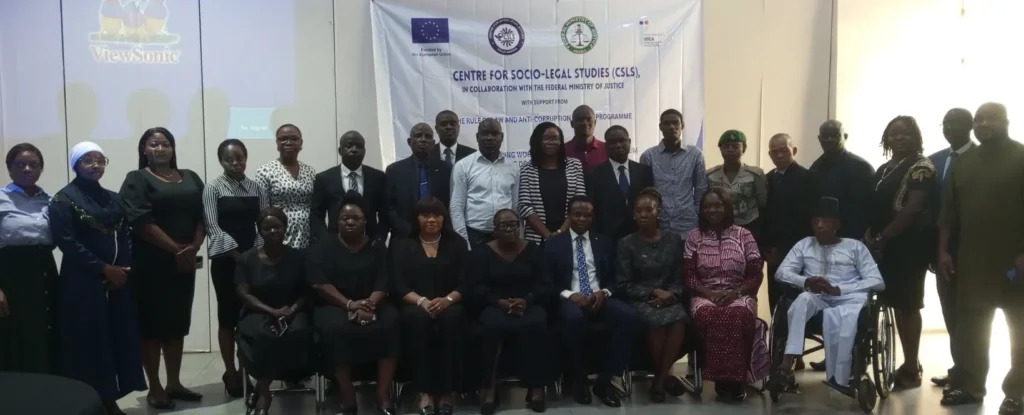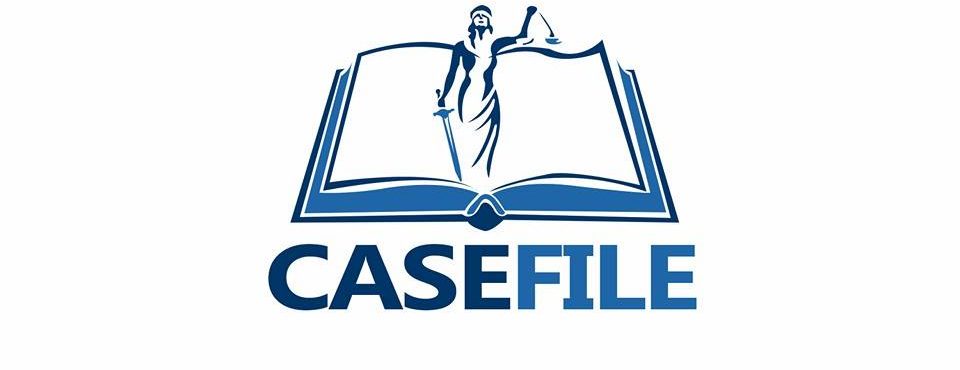The Centre for Socio-Legal Studies, CSLS, has urged stakeholders working in the criminal justice sectors to apply the National Minimum Standards, NMS, to effectively implement the Administration of Criminal Justice Act, ACJA 2015 and Administration of Criminal Justice Laws, ACJL, and deliver justice to Nigerian citizens.
CSLS creates awareness on National Minimum Standards
The National Minimum Standards is a working document developed by Ministries of Justice, Civil Society and development partners aimed at improving the ACJA and ACJLs at both federal and states.
Unless all stakeholders key into the NMS, the struggle to attain justice delivery will be aspirational in the face of challenges of inadequate investigations, weak prosecution efforts, delayed case resolution, court backlogs, and overcrowding in correctional facilities.
Against this background, Professor Yemi Akinseye-George, SAN led CSLS, in his virtual welcome remark on Tuesday at a two-day capacity workshop on the NMS for the implementation of the ACJA and ACJLs, held simultaneously across six states (Kano, Adamawa, Anambra, Edo, Plateau, and FCT) including Lagos, advised participants to promote a deeper understanding of the tool.
According to him, “As you are aware, the body of Attorneys-General in the country under the able chairmanship of the HAGF, Prince Lateef Fagbemi has adopted the National Minimum Standards as a basis for implementing reform and measuring impact by justice sector agencies and operatives. The NMS Document has also been adopted by the body of Solicitors General and Permanent Secretaries of the various Ministries of Justice across the country.
The CSLS President continued, “The National Minimum Standards have brought together in a single document the most salient features of the ACJA and ACJLs of states. These standards will be used to evaluate the effectiveness of federal and state agencies in realizing the objectives of the criminal justice system. A national Scoresheet or board will be developed in due course to show the ranking of each state in the implementation of the ACJ Legislation. The current National Scoresheet has Delta State as the foremost state in implementing the ACJ Legislation whilst Ebonyi and Zamfara occupy the lowest positions.”
He also hailed that strict enforcement by the Courts including the apex court of Section 306 has reduced the abuse of stay of criminal proceedings through interlocutory appeals. This has led to an upsurge in the return or recovery of stolen assets principally because it is more difficult to delay or derail trial proceedings.
NMS can have the force of law if … CSLS officer
One of the facilitators of the training, Kelvin Mejulu, CSLS programme officer, also explained the essence of the NMS, “As much as possible every state’s state laws with respect to the administration of criminal justice should not go below this particular standard. This is the benchmark that every state’s state criminal justice law should have. You can go beyond, but you should not be below the standard that has been outlined under the National Minimum Standards document.”
Advocating, “Heads of courts, should make practice direction with respect to some of these areas.
“For instance, the licensing of bond persons that should be able to take people on bail. Luckily, some of the states have already made practice direction with respect to registration and licensing of bond persons. And also, on the issue of trial within trial, we are also advocating that states should make practice direction on trial within trial, so that as much as possible, the delays in trial can be reduced to its barest minimum.
“Yes, these document do not have the force of law as of today, but through practice direction and maybe amendment of some of our laws, we can get to implement what is contained in the National Minimum Standard document.
“What we are doing here is to sell the document to stakeholders. So, stakeholders go to their different establishments and trickle it down to their various agencies.
Ajibola Ijimakinwa, State Programme Coordinator for the Rule of Law and Corruption Programme, RoLAC, thanked the Lagos participants for being at the training for criminal justice reform.
She said in her goodwill message, “We are here supporting the CSOs who do this training today and it’s happening simultaneously in all our program teams.
“We have seven teams that we’re working with Adamawa, Anambra, Kano, Edo, Abia and Lagos.
“So I’m happy that Lagos partners are available today to also be part of this training. So we hope that after this two-day training, we will go back to our offices and also replicate things to your other officers, it is so important,” Ijimakinwa said.
Mrs. Tomi Bodude, the Director of Community Service Unit, Lagos State Ministry of Justice brought to bare her experiences as a former prosecutor, and took participants on the innovations in the minimum standards for pre-trial, trial and post-trial stages of case management and other issues in the criminal justice system.
Stakeholders present at the training in Lagos were from the Office of Public Defender, Bolanle Osunsanmi, Magistrates from Lagos State judiciary, Florence Odidia from the Nigerian Correctional Services, and officers from MOJ.



